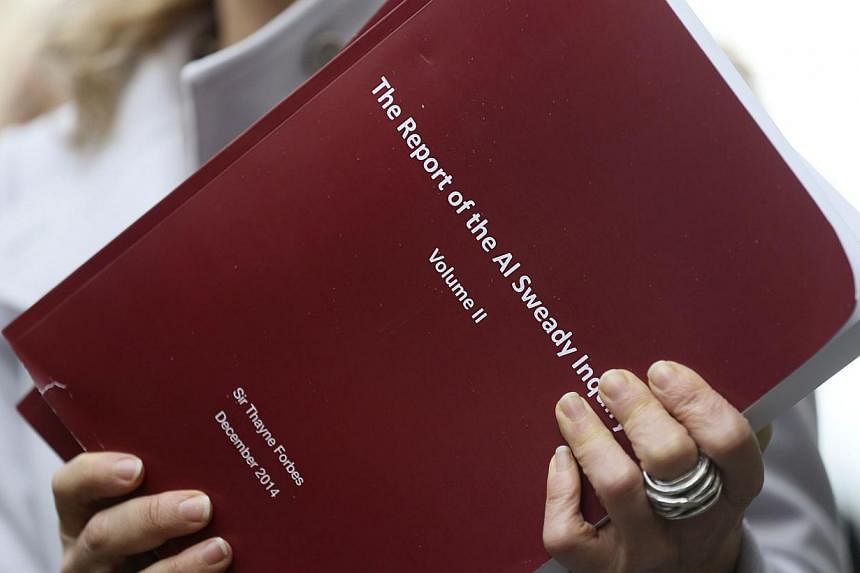LONDON (REUTERS) - Allegations that British troops executed captured Iraqi prisoners and tortured or seriously abused others after a battle in 2004 were based on lies, a long-running inquiry concluded on Wednesday, exonerating the armed forces.
The Al-Sweady inquiry, which has lasted five years and cost 31 million pounds (S$64 million), was charged with examining allegations made by Iraqis that British soldiers captured and then murdered 20 men after a battle in southern Iraq.
Iraqi witnesses told the inquiry the soldiers killed the men at the Abu Naji army camp in May 2004 and separately that they had mistreated nine detainees. Troops said throughout that the men died fighting on the battlefield and denied mistreatment.
Wrapping up the inquiry, which heard allegations of multiple murders, torture, and mutilation, its chairman, retired High Court judge Thayne Forbes, said all the gravest allegations had turned out to be false and accused Iraqi witnesses of lying. "All the most serious allegations... have been found to be wholly without foundation and entirely the product of deliberate lies, reckless speculation and ingrained hostility," he said.
However Forbes did recommend changes to the way the British army treats detainees and said that some behaviour amounted to"actual or possible ill-treatment", including the lack of adequate food and sleep and the use of certain questioning methods.
Lawyers representing former detainees and families of the deceased dropped the core allegation of unlawful killing in March, shortly before the inquiry concluded its hearings, citing lack of evidence.
On Wednesday they said the inquiry had still brought important examples of ill-treatment to light, three years after the last British troops left Iraq in 2011. "It found that on a number of occasions Geneva Convention provisions had been breached including the use of improper and proscribed interrogation techniques and that deficient medical treatment had been provided," they said in a statement.
The investigation, part of a legacy of allegations dating back to the US-led 2003 invasion and occupation of Iraq, heard allegations that a British soldier had seen his platoon sergeant fire into the twitching bodies of two Iraqi gunmen.
With the most serious claims now judged to be false, Defence minister Michael Fallon told the British parliament that the government would try to recoup costs from running the inquiry and was scathing of the claimants' motivations. "This in fact was a shameful attempt to use our legal system to attack and falsely impugn our armed forces," he said.

